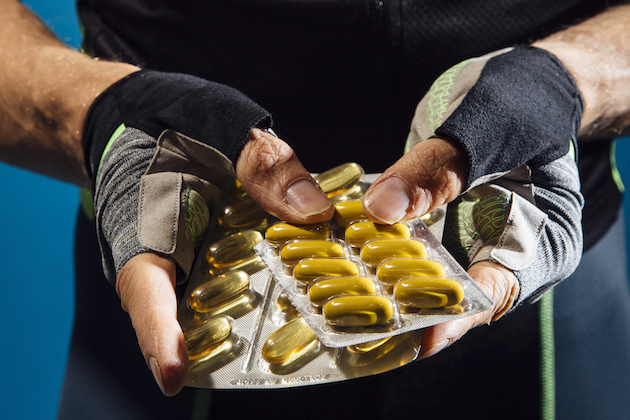60-year-old time triallist given four-year doping ban after claiming wife ‘spiked his smoothies’
Stephen Costello delivered positive sample after finishing 95th in 25-mile time trial

A 60-year-old time triallist has been handed a four-year doping ban after testing positive for three banned substances, which he claimed had come from smoothies which his wife had secretly been "spiking" with supplements.
Stephen Costello, of Abbotsford Park Road Club, tested positive for 1,3-Dimethylbutylamine, Ostarine, and GW1516 after finishing in 95th place in the Stone Wheelers 25-mile time trial on May 20, 2017.
Despite claiming that the banned substances had come from supplements which his wife had secretly added to smoothies, Costello's explanation was not accepted by the National Anti-Doping Panel, which issued him with a four-year ban to expire on June 15, 2021.
>>> Dr Hutch: The absurdity of doping excuses
In his evidence to the tribunal, Costello did not attempt to dispute the fact that he had tested positive for the three drugs, instead claiming that the adverse analytical finding was due to supplements added to smoothies which he had consumed for breakfast in the run-up to the Stone Wheelers 25-mile time trial.
Costello told the panel how he had thought that the smoothie had contained just fruit, vegetables, and ice. However Mrs Costello said that she had been adding four supplements (GW Stamina, Ostacize, T9 Diet Aid and L- Carnitine) to her own smoothies, and had also started to add them to her husband's smoothies a week before his positive test.
>>> Cycling time trials: how to get into time trialling
The latest race content, interviews, features, reviews and expert buying guides, direct to your inbox!
Mrs Costello said that her husband complained about his weight which he said held him back in hill climbs, telling the hearing that she did not tell him that she was adding them to his smoothies because she knew he didn't agree with them and thought they were a waste of money, and wanted to tell him "I told you so".
Watch: Is this the ultimate hill climb bike?
However the tribunal was unconvinced by this explanation for Mr Costello's positive test, pointing out that were no receipts or evidence that the supplements had ever been purchased, and furthermore that there was no evidence that the supplements contained the banned substances or had been contaminated.
The tribunal also found particular issue with Mrs Costello's testimony. Firstly questioning why she would go behind his back in the first place.
Secondly, why she added supplements which she said were designed to improve stamina, energy and muscle repair to his smoothie, when she was trying to help him lose weight, and why she thought they would help him lose weight when they hadn't helped her lose weight.
Finally, the tribunal questioned why, when this wasn't Mr Costello's first anti-doping test, he and his wife hadn't been on a higher state of alert, and why she had decided to add supplements to his drink without carrying out research on what they contained.
The tribunal also wondered why, as stated in her testimony, Mrs Costello had decided to take four tubs of supplements to the gym everyday, rather than just leave them in the kitchen when she wasn't trying to hide the fact that she was taking them from her husband.
>>> Full survey results: One in 20 amateur racers admit to doping
The tribunal concluded by saying that it was "not left feeling that this story was more likely true than not" and that Mr Costello had "failed to satisfy his burden of proof to convince the Tribunal that the ingestion of these Prohibited Substances was not intentional."
Cycling Time Trials (CTT), the national governing body for time trials in the UK, has invested in an expanded anti-doping testing programme over the last couple of years, and Nick Sharpe, the organisation's general secretary, said the fact that Costello was caught through a random test and given a four-year ban sends a clear message to riders.
"It is extremely disappointing to see another rider testing positive," Sharpe said, with Costello now the sixth rider to be currently serving a ban through testing by either CTT or British Cycling.
"Doping is cheating, and if you cheat there is a significant risk that you will be caught. I would hope that this will act as a deterrent because it shows that if you cheat then a combination of random testing and intelligence-led testing mean that the odds are that you will be caught."
Henry Robertshaw began his time at Cycling Weekly working with the tech team, writing reviews, buying guides and appearing in videos advising on how to dress for the seasons. He later moved over to the news team, where his work focused on the professional peloton as well as legislation and provision for cycling. He's since moved his career in a new direction, with a role at the Department for Environment, Food and Rural Affairs.